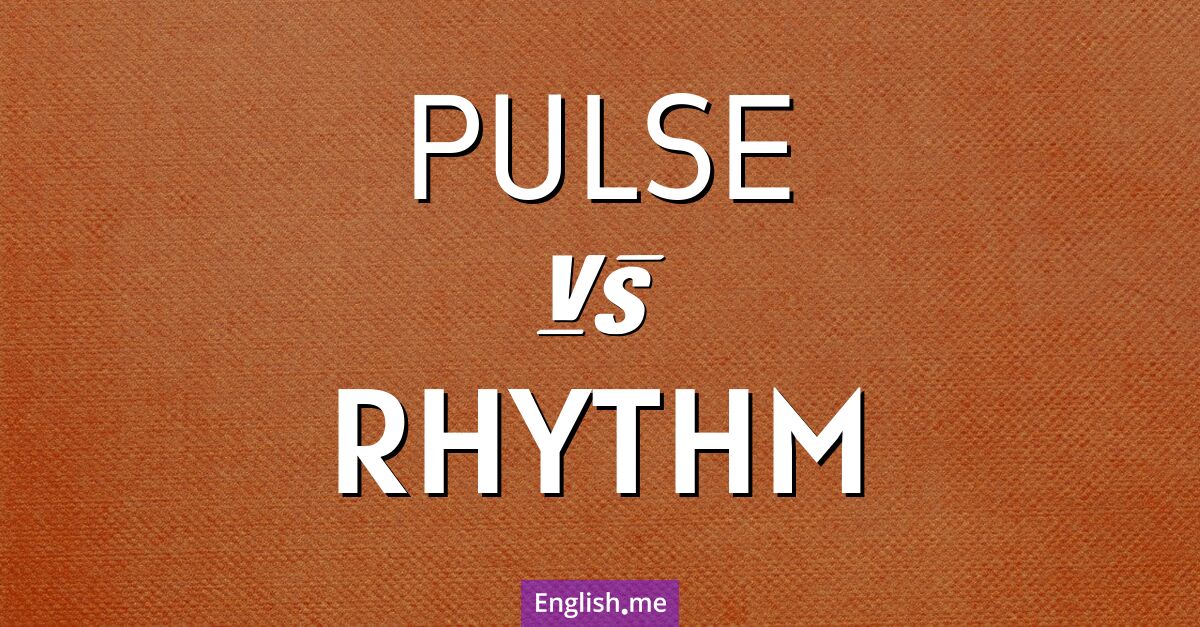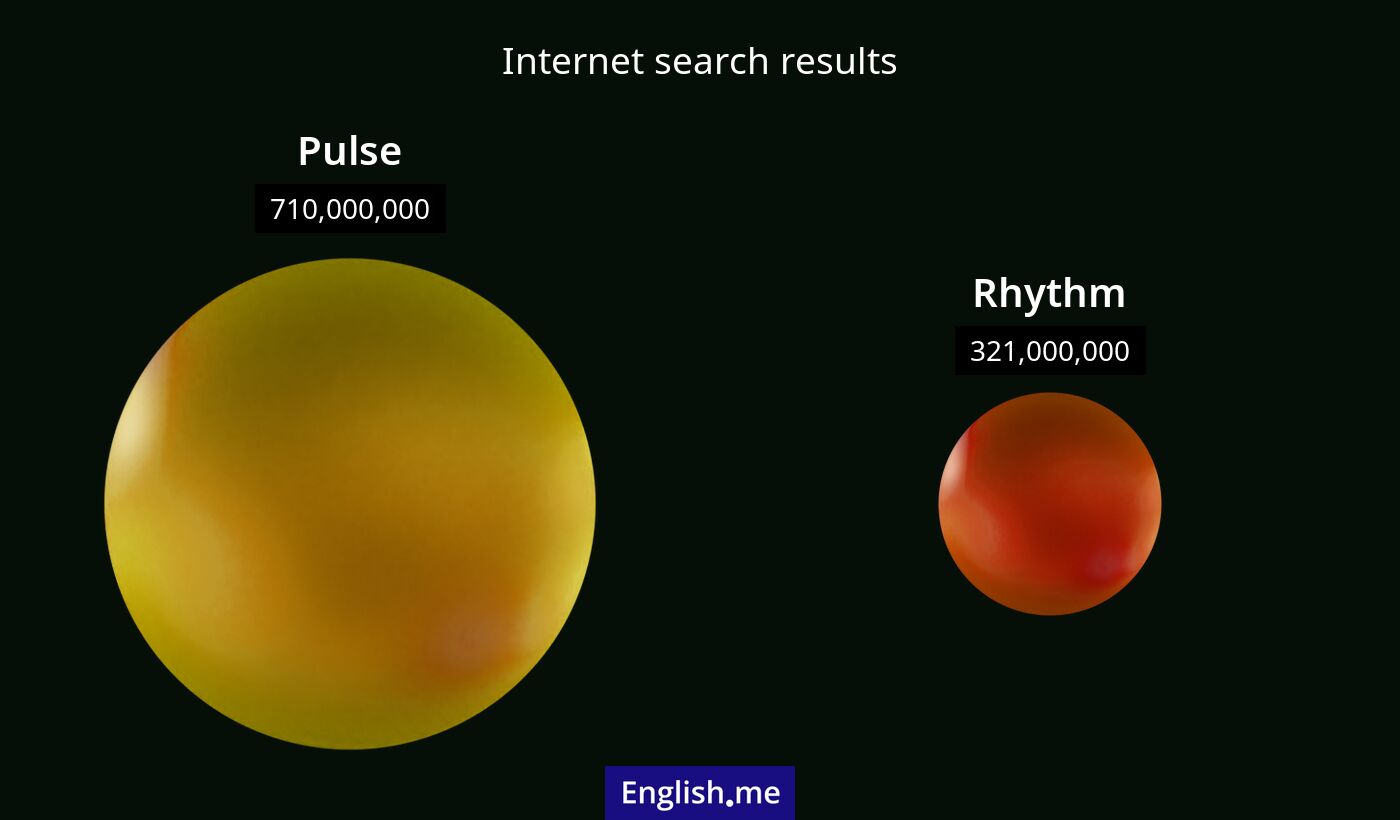"Pulse" and "rhythm": beating in unison or marching to different drums?
Reviewed and edited by  Lloyd Cooper 08/10/2024, 20:03
Lloyd Cooper 08/10/2024, 20:03
English.me team member

 What is similar?
What is similar?
Both "pulse" and "rhythm" relate to a regular pattern or beat. They are often used in contexts involving cycles or repetitive actions, such as music, biology, and the flow of events.
 What is different?
What is different?
"Pulse" generally refers to a single beat or throb, such as the beat of the heart or a short burst of energy, and is often associated with something that can be felt physically or measured. "Rhythm" refers to a repeated pattern of sound or movement and is often associated with the overall structure or flow of music, speech, or events.
 Which one is more common?
Which one is more common?

 Examples of usage
Examples of usage
Pulse- The doctor checked the patient's pulse to ensure their heart was functioning properly.
- I could feel the pulse of the music resonating through the floor.
- With each pulse of light, the room briefly illuminated.
- The drummer had a great sense of rhythm, keeping the band perfectly in time.
- She found her rhythm in the new job after a few weeks.
- The poem had a soothing rhythm that captivated the audience.

 English
English español
español française
française italiano
italiano deutsche
deutsche 日本語
日本語 polski
polski česky
česky svenska
svenska Türkçe
Türkçe Nederlands
Nederlands